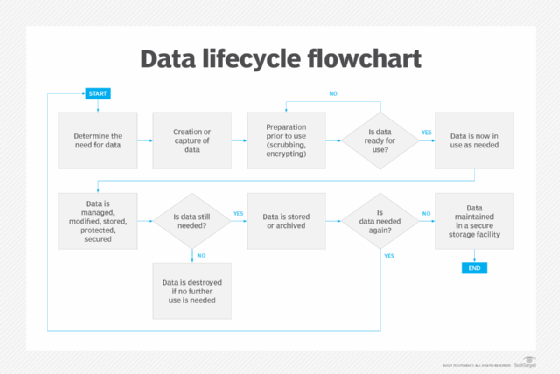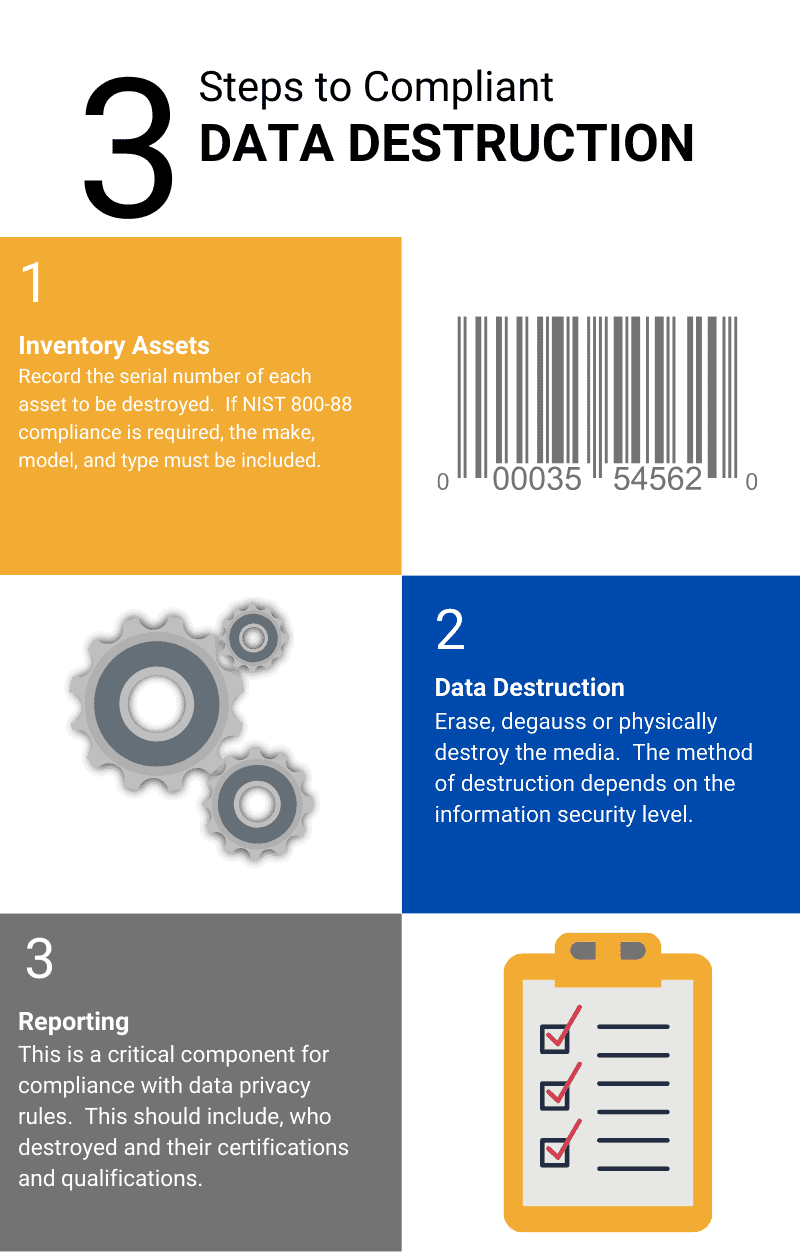The Effect of Effective Data Destruction on Cyber Security Risk Management
The Effect of Effective Data Destruction on Cyber Security Risk Management
Blog Article
The Relevance of Effective Information Devastation Practices in Safeguarding Sensitive Info and Ensuring Computer Protection
In an era where data breaches are significantly usual, the significance of efficient information devastation practices can not be overstated. Organizations face considerable risks when sensitive info is improperly dealt with, potentially causing unapproved accessibility and extreme monetary repercussions. Implementing robust data destruction techniques not only reduces these dangers yet likewise straightens with lawful conformity demands, making sure that companies maintain their online reputation and foster customer trust fund. The inquiry continues to be: what details strategies can be used to boost these techniques, and just how can companies successfully integrate them into their total cybersecurity structure?
Recognizing Information Damage
Understanding data devastation is vital in today's digital landscape, where delicate details can conveniently be endangered. Effective information devastation includes not merely removing data but making sure that information is irretrievable through extensive approaches. This process is crucial for organizations that take care of private client information, copyright, or internal records, as any kind of breach can bring about extreme economic and reputational repercussions.
Information destruction includes numerous techniques, including shredding physical media, degaussing magnetic storage gadgets, and using software-based solutions that overwrite data several times. Each approach offers a particular function and has to straighten with the sensitivity of the information being disposed of. Physical damage is usually favored for tough drives having highly private data, while software application methods might suffice for less delicate details.
In addition, adhering to sector requirements and regulations, such as the General Information Protection Guideline (GDPR) or the Health Insurance Policy Portability and Responsibility Act (HIPAA), is vital for compliance and to reduce legal threats. Organizations needs to develop a robust information devastation policy, train employees on ideal techniques, and on a regular basis investigate their procedures to make certain that all delicate info is gotten rid of securely and effectively.
Dangers of Inadequate Practices
Insufficient information damage practices subject organizations to substantial dangers that can have far-reaching effects. When sensitive details is not appropriately dealt with, it continues to be prone to unauthorized accessibility, which can result in data violations and identity theft. Such cases not only endanger the protection of individuals yet likewise tarnish the organization's reputation, leading to a loss of customer depend on and possible economic consequences.
Moreover, regulative compliance is progressively stringent in lots of industries. Failure to abide by data devastation regulations can lead to substantial fines and legal activities against organizations. These fines can divert and strain monetary sources attention from core company procedures.
Furthermore, the misuse of residual information can bring about intellectual residential or commercial property theft or business reconnaissance, threatening affordable benefits (data destruction). The impact of insufficient data destruction extends beyond instant financial losses; it can also cause long-term damages to brand integrity and market placement

Organizations should recognize that information security is not solely about avoiding breaches; it likewise includes the accountable administration of information throughout its lifecycle. Neglecting effective information devastation methods can have tragic effects, emphasizing the need for robust actions to alleviate these risks.
Ideal Practices for Data Devastation
Executing effective data damage methods is vital for securing sensitive information and maintaining conformity with regulative requirements. Organizations should adopt a multi-faceted strategy to make certain that information is irretrievable, thus avoiding unauthorized accessibility and prospective breaches.
First, information need to be classified based on level of sensitivity, permitting companies to apply ideal damage techniques tailored to the degree of threat. For digital information, using software-based data-wiping tools that abide by market standards can properly overwrite existing information. Physical devastation methods, such as shredding or degaussing, are crucial for tools that store delicate information, making certain total eradication.
Developing a clear information retention plan is vital, outlining how long various sorts of info should be maintained before damage. Normal audits of data storage space systems are also needed to identify out-of-date or unnecessary data needing elimination.
Additionally, training employees on the value of information destruction and the certain methods to follow fosters a culture of protection within the organization. Preserving paperwork of information devastation processes provides responsibility and supports conformity with exterior policies and interior policies. By sticking to these finest techniques, companies can significantly reduce the dangers associated with data direct exposure.
Legal and Compliance Factors To Consider

Failure to follow these policies can cause severe charges, consisting of significant fines and reputational damages. Organizations has to execute a robust information devastation policy that lines up with these lawful structures and provides clear guidelines on the correct approaches of data disposal, whether physical shredding or digital wiping.
In addition, keeping documentation of data damage tasks is essential for demonstrating compliance throughout audits or examinations. By prioritizing legal and conformity considerations, companies can boost their data safety and security pose and foster trust fund with stakeholders and clients, inevitably adding to an extra secure data management environment.
Benefits of Effective Data Damage
Efficient data destruction practices prolong beyond simple conformity; they use significant advantages to organizations that prioritize them. By guaranteeing that sensitive information is irretrievably destroyed, companies minimize the threat of data breaches and the potential monetary consequences connected with them. This proactive approach not only safeguards versus unapproved gain access to but likewise read this improves the overall go now credibility of the organization in the eyes of stakeholders and customers.
Carrying out robust data devastation techniques, such as physical damage of storage devices or advanced information cleaning techniques, adds to the fortifying of an organization's cybersecurity posture. data destruction. It lowers the chance of copyright theft and secures proprietary info, thus keeping a competitive edge in the marketplace

Conclusion
In final thought, reliable data damage practices are necessary for safeguarding sensitive info and improving total computer system safety and security. By carrying out thorough techniques such as degaussing, software program, and shredding overwriting, companies can minimize the dangers linked with unauthorized access and data violations. Adherence to regulatory standards, consisting of GDPR and HIPAA, additional strengthens compliance and safeguards against legal repercussions. Ultimately, a dedication to durable check that information damage methods promotes a culture of obligation, thus strengthening an organization's cybersecurity posture and keeping customer depend on.

Report this page